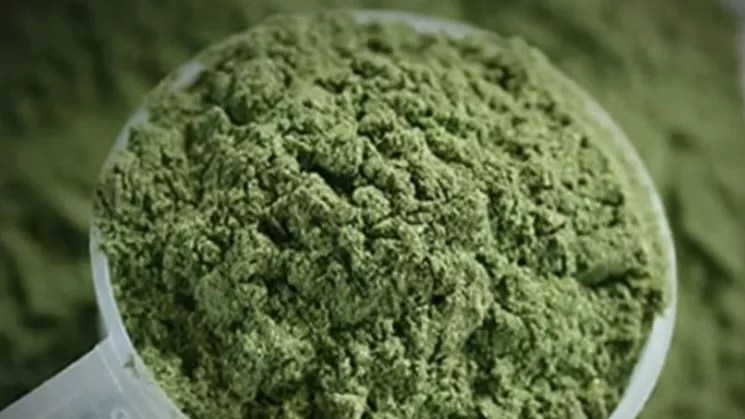
CBS This Morning via YouTube

Audio By Carbonatix
Kratom, a popular organic substance of Southeast Asian origin, remains controversial thanks to warnings from the federal Food and Drug Administration over questions about safety and claims that the herbal pain reliever is as addictive as the opioids that many users say it helped them stop taking. The City of Denver issued a human-consumption prohibition on kratom in 2017, yet actual tons of the herbal product are being peddled around Colorado.
Could such sales come to an abrupt end in Colorado communities or even the state as a whole? That’s certainly a possibility, say advocates for the Kratom Consumer Protection Act, a proposal crafted by representatives of the American Kratom Association.
Versions of the act are now law in four states – Arizona, Georgia, Nevada and Utah – and members of the organization have been working behind the scenes since last year to facilitate its introduction in Colorado. While no proposal has yet appeared at the Colorado Legislature, the pro-kratom forces remain confident it will soon, and not a moment too soon: The AKA is currently tracking efforts to ban the product in Hawaii, South Dakota, New Hampshire, New Jersey, Missouri and Connecticut.
“There’s no case scientifically for kratom to be banned,” maintains Mac Haddow, the association’s senior fellow on public policy. “But we’re working with a number of legislators to get the Kratom Consumer Protection Act introduced.” Haddow declines to name the legislators prior to the bill’s debut.
Corky Kyle of the Kyle Group, a Denver-based government relations firm lobbying on behalf of the act, echoes these observations. “We have legislators who are interested in carrying the bill, and we’re working with leadership to finalize it,” he says. “And I anticipate that we’ll be successful. It’s just a question of time.”
According to Haddow, the language of the Kratom Consumer Protection Act “says every kratom distributor has to register with the state where they’re selling a kratom product. It says they have to submit a lab analysis of the products they propose to sell from an independent lab that meets federal requirements. It says the products can have no greater than the alkaloid content that shows up in the natural plant. It says you have to manufacture it according to good manufacturing standards and you can’t add any deleterious ingredients to the product – and you have to list all the ingredients on the package, so people know what they’re getting and what the serving size is. And it’s also recommended not to sell it to anyone under eighteen, even though it doesn’t give you a high or a euphoric feeling unless it’s been adulterated.”
While the advocates work behind the scenes in Colorado, what Haddow sees as the unfair demonizing of kratom is leading to actions like those that have played out in San Diego County over recent weeks. “Because of the way California law is written, the San Diego County Board of Supervisors tried to declare it a public nuisance,” Haddow notes. “So I went down there and testified, and after they listened to the testimony and comments from the health department, the sheriff’s office, the coroner’s office and the district attorney’s office, they all agreed that regulating was far better than banning it. So they passed an ordinance that said the county administrator would come back with recommendations about how to regulate it and how much of the Kratom Consumer Protection Act could be implemented.”
Haddow had to go through a similar drill last year in Colorado, when Castle Rock took on the kratom question. “I went there and testified before city council and a regional group,” he recalls. “But they didn’t ban it. They just put an age restriction on it.”
If the Kratom Consumer Protection Act becomes law in Colorado, Haddow won’t have to go from community to community in the state to fight efforts like that one – and he feels plenty of people will benefit.
By the association’s estimate, “about fifteen million people in America use kratom,” he says, “and the reasons they do break down into thirds. About a third use it like coffee, another third use it for mood elevation, and a third use it as pain relief or as an alternative to opioids. We rarely hear from the first two-thirds, but we do hear from people who talk about how it was their salvation and saved their lives, because they were able to get off opioids.”
He adds: “If anyone believes harm reduction is the best public policy, we need to continue to allow access to kratom. That’s the bedrock of the Kratom Consumer Protection Act – to let consumers in Colorado and elsewhere make informed decisions, knowing it’s a safe product and they can use it any way they’d like.”